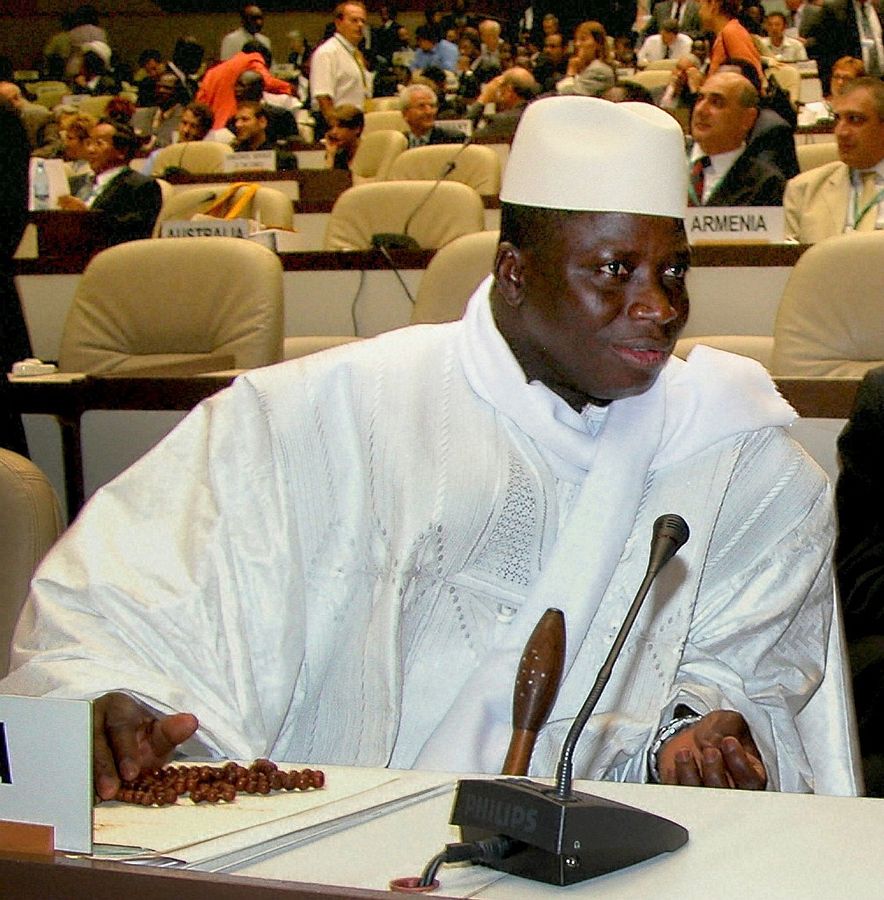
BANJUL, Gambia — Gambia’s ex-President Yahya Jammeh looted the tiny West African nation of $1 billion through fear and privilege during his 22 years in power, an amount more than 10 times higher than originally estimated by the new government, leaving the country in lingering debt, according to a report Wednesday by the investigative group Organized Crime and Corruption Reporting Project.
Jammeh looted the money from state coffers, including the central bank, social welfare office and state telecom company, during his more than two decades in power, getting away with it by elevating civil servants to prominent positions and empowering a group of businessmen led by a key Hezbollah financier, the corruption reporting group said.
The $1 billion was used to finance his lavish lifestyle and is believed to still support him in his exile in Equatorial Guinea, the investigative group said.
Meanwhile, Gambia remains very poor with a debt of $489 million at the end of 2017, according to the World Bank. Gambia’s central bank also owes more than 130 per cent of its GDP to lenders, according to the International Monetary Fund.
Gambia’s President Adama Barrow, who beat Jammeh in 2016 elections to usher in a new era for the nation, estimated that Jammeh stole about $90 million. There is an official commission of inquiry launched to look into the stolen funds. The U.S., where Jammeh also bought property, has also banned Jammeh from entering the country because of what it calls “significant corruption.”
Gambia’s government has not yet commented on the report.
The project said that bank statements, contracts, government correspondence and internal reports show “a web of fraud that far exceeds the figure offered by Barrow.” The money that was not funneled to presidential controlled bank accounts went to businesses that received lucrative contracts from the former leader, the investigative group said. He got away with it because Gambia is small, with a population of some 2 million people, and remained relatively obscure, the group said.
“He ran the country like an organized crime syndicate,” said Jeggan Grey-Johnson, a Gambian activist and communications officer at the African regional office of the Open Society Foundation.
Jammeh pillaged money through force, threatening those who dared to stand up to him, and setting up various accounts to hide the assets.
Gambia’s Central Bank governor from 2010 to 2017, Amadou Colley, said during testimony to a commission that Jammeh and his supporters exerted “significant control over the institution,” and often withdrew funds without proper paperwork, according to the report, which said he diverted more than $71 million from the reserves in only a few years.
His methods of choice were to hijack the central bank’s accounts, create new accounts on which he or his supporters were the only signatories or he used accounts that had gone dormant.
Jammeh also found other techniques, gaining significant foreign aid by recognizing Taiwan’s independence from China in 1995 and having those funds funneled to him and other close associates, including a key financier for Hezbollah named Mohamed Bazzi, who was used as a middleman to invest money in the state-owned telecommunications company and who among others became a beneficiary, the investigative group said in its report.
“The true scale of Jammeh’s thefts from the central bank may never be fully known,” the organization said.